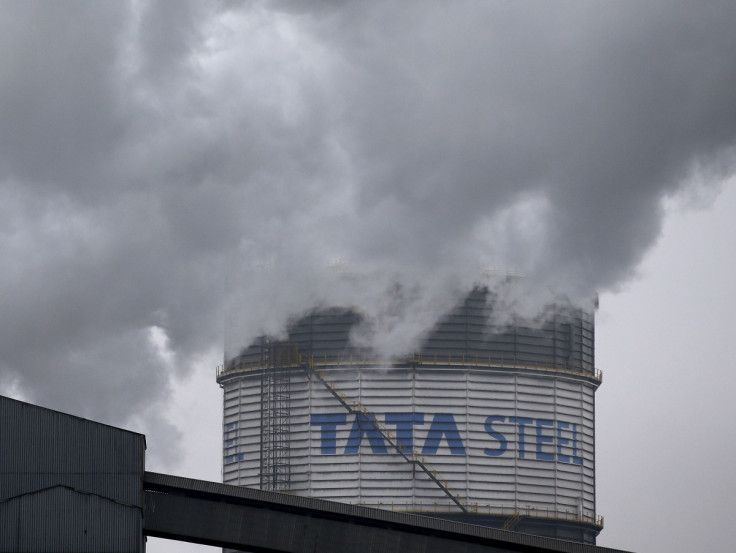Port Talbot and lame duck steel

If the Scottish newspaper The Herald is read in Wales, then its 09 April 2015 headline "Rescued steel mills 'back to work in summer'", many in downcast Port Talbot where the future is so uncertain, may be wishing that the Welsh Assembly in Cardiff, could step in as Edinburgh's Holyrood has done and save their jobs – and maybe, town.
There are however, major differences. The most obvious being the scale of the plants involved in Scotland, smaller and more specialized, and Wales, big even on a European scale and in the worst of all possible markets for its wares. There is also the future of the very nature of steel production as envisaged by Sanjeev Gupta, CEO of Liberty House Group.
Changes in work practices and methods, like electric arc furnaces instead of blast furnaces and the need to be ever flexible in a harsh market almost go without saying and, make no mistake, Mr Gupta's "new era" for the industry which he proudly proclaimed in Motherwell last Friday, will have a finite time limit in which to start turning a profit, with any support from a most eager Scottish Government, gratefully received.
On Friday at the Dalzell plant in Motherwell, Scotland's First Minister, Nicola Sturgeon and her Enterprise Minister, Fergus Ewing, attended a ceremony with Mr Gupta, transferring the business from the previous owner, Tata Steel, to Liberty Steel.
Holyrood had facilitated the transfer of ownership by "purchasing" Tata's interests for £1, before immediately "selling" this on to Liberty, probably for the same amount. This allowed Tata Steel to walk away with minimal cost with Liberty assuming any clear up charges and the investment required to complete the changes to suit their new production needs.
There was a further sweetener provided by the Scottish Government which was acknowledged by Mr Gupta at Friday's handover:
"We are lucky that the Scottish Government supported the retention of the key workforce, which is key to getting started quickly, otherwise it would have been a much bigger and much more difficult undertaking."
About 150 employees are expected to start work again "somewhere around August – September" at the Dalzell and Clydebridge plants and the other 120 who were made redundant when both the sites were mothballed last October, will be hoping that once everything is up and running, they will be taken back on.
Possibly by way of offering a guiding hand to Westminster, Ms Sturgeon advised:
"If there is any learning or experience we have got here that can be brought to bear in trying to secure a future for Port Talbot, we will happily share that...Steel is too strategically important an industry to allow to go to the wall."
If good progress is being made North of the Border with Mr Gupta playing the white knight, he is unlikely to be so obliging with Tata Steel's Port Talbot works and Liberty House Group's CEO has been rather circumspect in any interviews he has given regarding the potential purchase, yet he is the only name to have come forward.
The fact is that Mr Gupta thinks that Port Talbot is inefficient and would want to change the furnaces to the electric arc process which uses scrap steel – which incidentally, the UK currently exports – and seeing no future for SSI's Redcar blast furnace which ceased production in September last year, made no effort to buy it.
Instead, about this same time, Liberty was opening up its hot strip mill in Newport, Wales, which it had taken out of administration from former owners, Alphasteel. Newport buys "cheap" imported steel slabs which, after being rolled and stretched, are wound into coils and used to make or be part of multifarious items. The market for steel coil in the UK is about a million tonnes per annum and clearly, Mr Gupta is determined to be a major player in this field.
Liberty also bought parts of Caparo Industries which went out of business last autumn. Another relatively small firm with attractive products, the steel tubes and high-end engineering sections were retained along with the expertise of over 900 skilled staff.
What prospect for Port Talbot? An integrated steel plant capable of producing five million tonnes of steel per year, though more recently achieving some 3.5 million tonnes, and employing about 4,000.
Mr Gupta knows his turf, is very selective, prefers to retain the highly skilled in any enterprise he buys and doesn't usually make the steel but purchases what suits, ready-made and at world market price.
The Telegraph on 09 April spelled out very clearly the terms Mr Gupta wants on any Port Talbot purchase:
Replacing blast with electric arc furnaces that will melt scrap.
Relief from high energy prices.
No thanks, the £500 million pension deficit is not part of the deal.
Ditto, the £1 billion cost of cleaning up the site.
Government, Opposition, Unions – Welcome to the real, frightening world, where everything from energy pricing and climate change policy, may very well have to be revised if Britain is to have a long-term and viable steel industry.
© Copyright IBTimes 2025. All rights reserved.






















